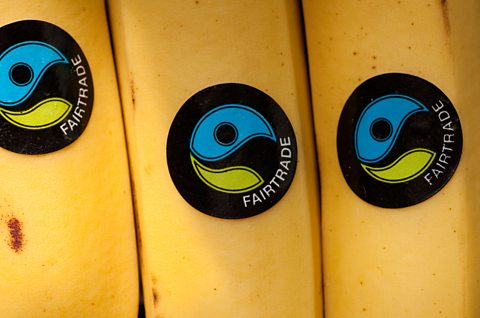Costs and benefits of Fairtrade activities

The result of world trade is that workers in primary industriesA type of work that involves the extraction of natural resources e.g. fishing, forestry and mining. in less economically developed countries often lose out. This includes:
- low wages
- poor standards of living
- inability to afford education for their children
- children required to work to help their families earn a living
The Fairtrade movement is controlled by the Fairtrade Foundation. This is a non-profit organisation that is:
- licenced to use the Fairtrade mark
- aims to increase demand for Fairtrade products
- raises awareness of the need for Fairtrade
The Foundation was established in 1992 by CAFODCatholic Agency For Overseas Development, Christian Aid, Oxfam, Traidcraft, Global Justice Now, and the National Federation of Women’s Institutes.
| Costs | Benefits |
| Fairtrade products can cost more, which may put some customers off | Quality of life should improve for workers in primary industries |
| Limits the choice of suppliers for a business | The long-term prospects for children in the area should improve |
| Fairtrade mark will make products more attractive to customers | |
| Improves the company reputation if they are seen to be ethically responsible |
| Costs | Fairtrade products can cost more, which may put some customers off |
|---|---|
| Benefits | Quality of life should improve for workers in primary industries |
| Costs | Limits the choice of suppliers for a business |
|---|---|
| Benefits | The long-term prospects for children in the area should improve |
| Costs | |
|---|---|
| Benefits | Fairtrade mark will make products more attractive to customers |
| Costs | |
|---|---|
| Benefits | Improves the company reputation if they are seen to be ethically responsible |